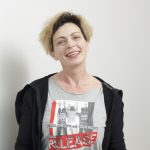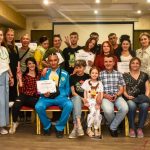
Trainings in Tajikistan, Kazakhstan and Georgia for peer consultants/talk on online consulting
A blog by Vielta Parkhomenko, EHRA consultant
There really are a lot of peer consultancy manuals out there, so my task was not only to collect working methodologies and tools and “flavor” them with my own knowledge and experience but also to teach people with substance use experience e how to counsel them within their community in an online format.
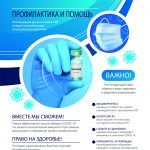
Access to treatment under COVID-19 restrictions in Belarus
Interview with Sergey Kryzhhevich, Belarus Republic national community- led NGO “Your chance”.
EHRA In 2021 “Your chance” implemented a small grant within “We Will Not End AIDS Without Harm Reduction” project framework.

Sex, rights, gender: hastening the sunrise
Interview with Svetlana Moroz
EHRA Senior Program Officer Maria Plotko spoke with chairwoman of the board of the Club ” Svitanok ” Svetlana Moroz about their study on “Access of women who use drugs to sexual and reproductive health, HIV and harm reduction services in Donetsk and Lugansk oblast”, advocacy for the rights of women who use drugs, and the situation with gender-sensitive services in Ukraine.

Help impossible to ignore
Marija Sketre, EHRA Senior Program Officer and Ganna Dovbakh, EHRA Executive Director
On International Women’s Day, we asked partners to share their ideas of support that should be offered to a woman using drugs experiencing violence. We share their dreams of safety, support, solidarity and protection of rights.
Drug policy and harm reduction in Southeast and Central Europe
Interview with Peter Sarosi
Peter Sarosi is a Hungarian human rights and drug policy activist, executive director of the Rights Reporter Foundation, advisory board member of the Eurasian Harm Reduction Association and the Steering Committee member of the Correlation European Harm Reduction Network. Maria Plotko talked to Peter about the state of harm reduction in Central and Southeast Europe.
“Why are we speaking about harm reduction advocacy in HIV response?”
Ganna Dovbakh, EHRA Executive Director
Why do we need advocacy for decriminalisation and harm reduction in Eurasia for effective HIV response? Why are we speaking about harm reduction advocacy in HIV response? Why bother yourself with the issue of drug policy and decriminalisation of drug use and possession?
“Support. Don’t Punish” What has Changed on the Horizons of Drug Policy?
Eliza Kurcevič, Senior Program Officer, EHRA
In 2017, Lithuanian legislators decided that the laws related to the possession of psychoactive substances needed to be tightened. And by taking such a step, they turned the “war against drugs” into a “war against the people”. Why did it become a war against the people?
Forward to the Basics of Harm Reduction
Ganna Dovbakh, EHRA Executive Director
In July 2019, together with the Steering Committee we were thinking about the EHRA strategy for the coming five years and went twenty years back, remembering the journey that we made together, analyzing what inspired us throughout those years, what gave us the energy, what we were able to achieve, what difficult compromises we had to make, and what we are sorry about. It was a very useful reflection, giving us a chance to see the perspective of where we are going further and what past experiences we can use.
When a tank is urgently needed to transport… methadone to hospitals
Olga Belyaeva, Advocacy Manager, EHRA
A tank is urgently needed! It doesn’t have to be a new one. The tank is needed to transport methadone to hospitals in Kazakhstan. Drug control authorities require paramilitary security for the transportation of drugs. However, the state is not going to allocate funds for security measures and this issue has not been resolved in 10 years.
The Magic Bracelet
Olga Belyaeva, Advocacy Manager, EHRA
When I heard someone knocking on my hotel room’s door and shouting “She is dying!!!” I was in the bathroom. Just five minutes ago, I entered my room, took my coat and shoes off and… ran out straight away with naloxone. After that memorable meeting in Scotland, I carry it with me all the time…
The future is intersectional
Maria Plotko, Program Officer, EHRA
Over the last few months, two important conferences on drug policy and harm reduction took place in Europe: activists were sharing best practices and tools at the International Harm Reduction Conference in Porto, whereas researchers were presenting their findings at the annual conference of the International Society for the Study of Drug Policy in Paris. The two conferences shared the topic but crucially did not form joint advocacy efforts. What drug policy movement needs now is to connect these two worlds. Here are my highlights from both conferences.
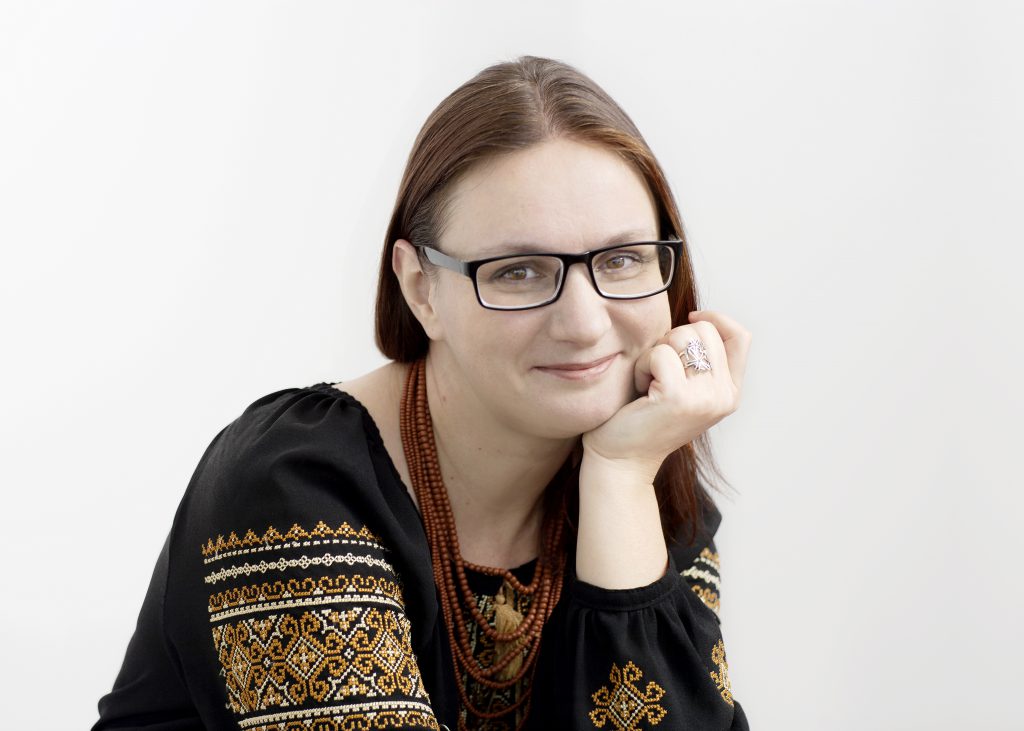
Porto aftertaste: populism, new allies and issue of quality
Ganna Dovbakh, EHRA Executive Director
The International Harm Reduction Conference (HR19) is like a family gathering for us – it’s a regular occasion that we are looks forward to. We are getting ready for it, gathering news to share and dressing up because everyone will be there. New members who only just joined (we need to get to know each other, find common topics of conversation), as well as those we’ve known for a long time, those who only need a supportive hug like “Hang in there, brother, we’ll get through this! Proud of you, sister!”. This event can only nominally be used for advocacy because the politicians, scientists and officials who attend are mostly “our people”. They are instrumental in developing the strongest arguments for the importance of investing in harm reduction and reforming drug policy. Majority are there to share practical approaches, how they developed it, piloted and what recommend for other countries. The three days of the conference encompass everything from birth and love to death.
The impact of the Global Fund’s Eligibility Policy on the sustainability of the results of the last Global Fund HIV grant for Russia
What was the point of abandoning everything that was achieved within the GF-funded 3-year project in 2018, when it’s highly likely that everything will have to be started from scratch in 2020? Isn’t it just a waste of money, time, efforts and lives of people affected by HIV?
People Use Drugs. We Want To Know What Do We Use
Eliza Kurcevic, Membership and Program Officer, EHRA
This year, during the International Harm Reduction Conference there was plenty discussions, workshops and exchanges of experiences about drug checking services. The more experienced organizations were speaking about the positive results of this harm reduction service, as well about the need to make it more accessible for people who use drugs, while organizations, which just started drug checking, were sharing the barriers and challenges they face while providing this service.
They thought they had buried us. But they did not know that we are seeds
Olga Belyaeva, Advocacy Manager, EHRA
Each community has its own history of the manifestation of the inner strength of people, when these words penetrate the skin and become the meaning of life. It has happened to me in Narcofeminism, along with every woman nearby.
How are we doing? We’re summing up the first two years of “teal” self-government
Ganna Dovbakh, Executive Director of EHRA
It’s rare when you have a proper reason to tell how everything works inside the organization. You always praise the celebrant on their birthday and that is why today when it’s 2 years from the date of EHRA’s registration, I want to say a few words about how we work.
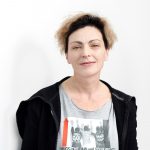 I do it – IDUIT
I do it – IDUIT
Olga Belyaeva, Advocacy Manager, EHRA
After our meeting was compared to the Moon and the creative and self-sufficient musician Shnur I feel entitled to publish my notes for people who organise meetings for people who use drugs.
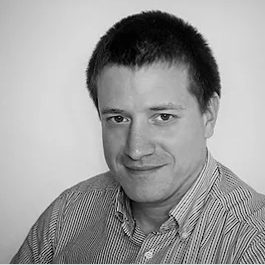 Harm Reduction Beyond Numbers
Harm Reduction Beyond Numbers
Péter Sárosi, Drugreporter
Harm reduction is of the people, for the people, and by the people. Assessing scientific data about trends of infections or access to services is necessary when measuring the social impact of harm reduction as a set of interventions. But statistical data in itself is far from sufficient to have a real insight into how harm reduction works as a movement, how is it embedded into the local political and cultural context, and how it affects the lives of individuals and communities.
Pilot OST Programs in Kazakhstan – How to Avoid Being Thrown Overboard
Dasha Matyushina, Drug Policy and Human Rights Advisor, EHRA
“On my way to Pavlodar I did not expect to see an exemplary OST site – I am aware of the challenges such programs face in Kazakhstan and how hard it was to open and keep sustaining OST sites there. I also know what a „pilot OST site“ really means: minimum clients, maximum rules.”
 LITHUANIA: WHERE ONE SHARED JOINT MAY COST YOU LIBERTY
LITHUANIA: WHERE ONE SHARED JOINT MAY COST YOU LIBERTY
„After the New Year, for the smallest amount of marijuana – criminal liability and immense fines, „In one of Vilnius bars, police made a raid: Some of the bar visitors were scared, some were laughing“, „A young man was sentenced for the distribution of drugs, committed a suicide in the Lukiškės Interrogation Insulator“ , „Penalties in Lithuania: for one shared joint – imprisonment from 2 up to 8 years“ – those are just a few titles of the headlines in the news portals, during this year (2017).




